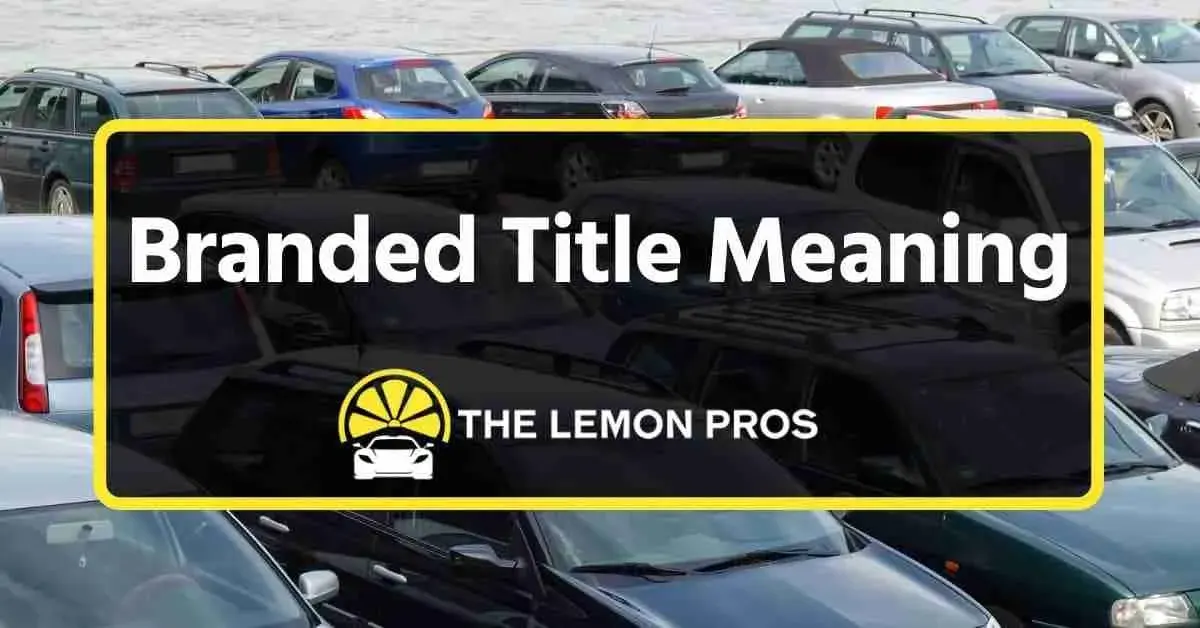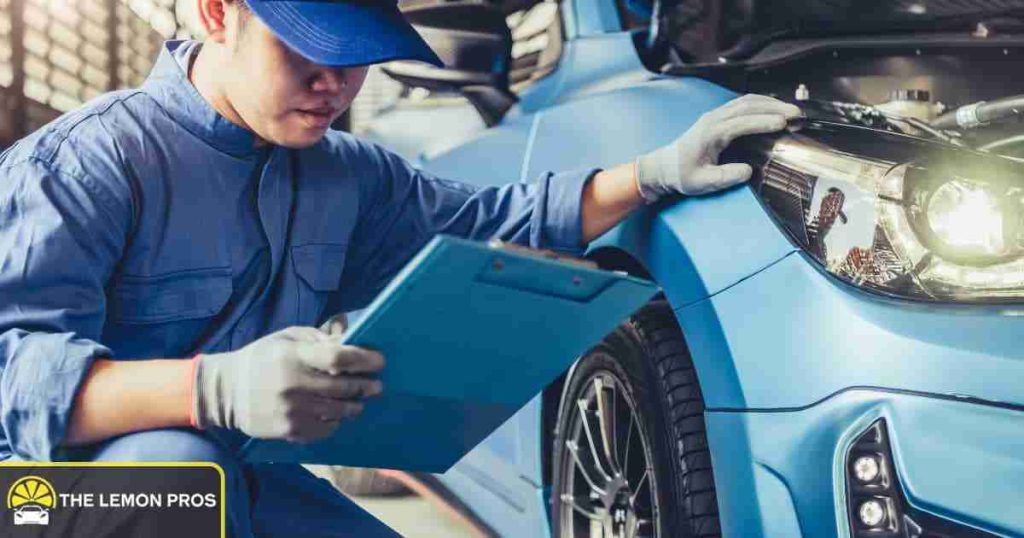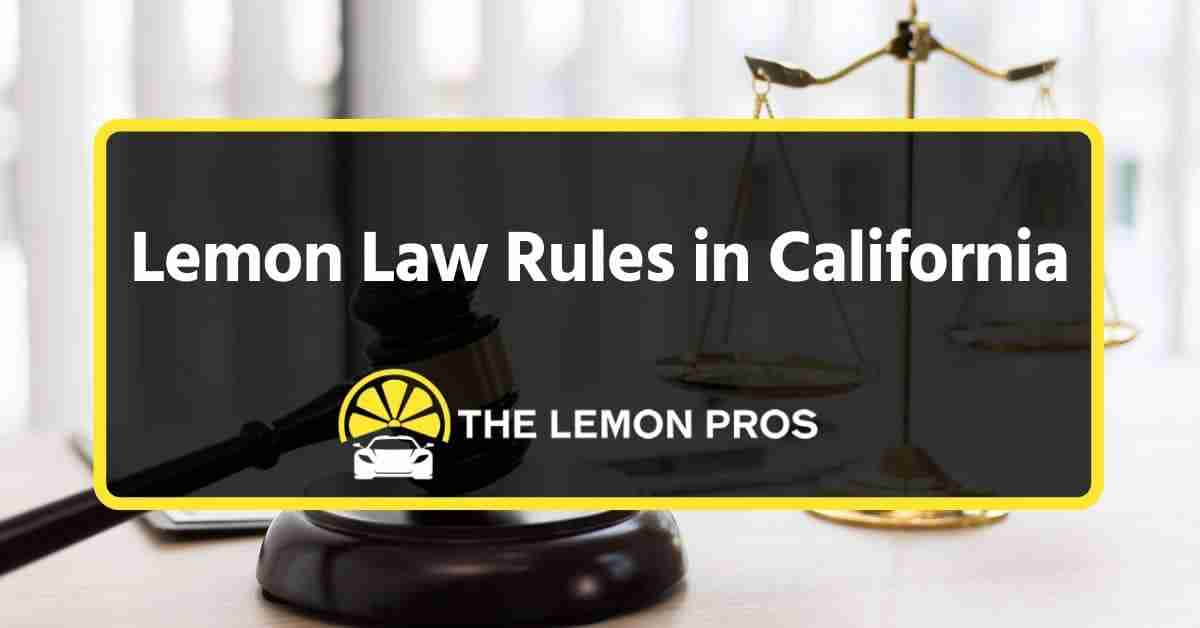
Branded Title Meaning: Why It Matters for Car Buyers
The branded title means that a vehicle has been labeled by the California Department of Motor Vehicles (DMV) to indicate significant issues or damage in the past. These warnings are given to alert consumers so they aren’t taken advantage of, and that they know what they are buying.
The Lemon Pros know how to protect consumers from fraud and deception regarding branded titles. Our practice area is centered around ensuring our Californian clients get the compensation that’s owed to them for driving defective cars. Contact us today for a free case evaluation.
In this post, we cover the meaning of a branded title car and explain the different types of branded titles and how they can impact your rights. We also show you how to protect yourself and give you tips if you need to fight for your rights.
Table Of Contents
What Does a Branded Title Mean on a Car?

A car earns its branded title after there’s been significant damage or an event in its history that affects its safety or value. This branding is issued by the DMV so future buyers understand what they are getting.
While the title brand definitions vary, any time that a title is branded, it simply states that there’s a problem consumers need to know about. A branded title affects the vehicle’s resale value and may require different inspections or repairs before you can legally drive it, so it’s important to understand the differences in the various meanings.
For example, if a vehicle has been involved in a major collision and is deemed a total loss by the insurance companies, it’s going to be considered a salvage vehicle. Fire damage and floods can also impact the car title. Some Lemon law cases also result in branded titles when the manufacturer has to repurchase the car from the driver.
Types of Branded Titles
In California, the state will apply a variety of different brandings to the title based on what’s wrong with it. Here are some of the most common you can encounter:
Lemon Title (Lemon Vehicle)
Under California Lemon law, vehicles with recurring, unrepairable defects covered by the warranty can be repurchased by the manufacturer in a buyback. Once the manufacturer takes the vehicle back, the car receives a lemon title, so other potential buyers know there could be an unrepairable issue.
Salvage Title (Salvage Vehicle)
If a vehicle has significant damage to the extent that the repairs would cost more than the car’s value, it receives a salvage title. The insurance company declares the need for a salvage title after major accidents, fire damage, floods and theft.
Rebuilt Title (Rebuilt Vehicle)

The only way to turn salvage titles back into drivable cars is to get a rebuilt title. If the owner repairs the vehicle and has a state safety inspection, it can receive a rebuilt title, indicating that the previous damage is gone.
Odometer Rollback Title
Once the vehicle’s odometer has been tampered with (federal crime), California rebrands the vehicle with this special title to indicate fraud has occurred.
Stolen Title (Stolen Vehicle)
If a vehicle has been stolen but isn’t deemed an entire loss, it may simply end up with a stolen title. Sadly, the National Insurance Crime Bureau (NICB) has reported a rise in stolen vehicles, making this an even bigger threat over the past few years.
Grey Market (Non-USA)
If the vehicle was originally for sale outside of the United States, it would need to be converted to meet California and federal guidelines to be exported, so it would have received a grey market branding.
Original or Prior Taxi
This branding indicates that the vehicle was used for hire, usually resulting in high mileage and excessive wear.
How Branded Titles Impact Your Lemon Law Rights
A lemon vehicle is one with unrepairable defects covered by the warranty. Such a vehicle has been in the repair shop multiple times, but no fix has been identified, leaving the driver with a defective car.
After a car is deemed a lemon, the owner can sell it back to the manufacturer or get a replacement, at which point it would receive the official designation of being a lemon based on the title. Once the vehicle’s title paperwork indicates that it was a lemon, there’s no longer compensation available to future buyers. The only exception to this would be if the dealer failed to disclose its status to you, and you were deceived. At this point, it would be best to get a Lemon law attorney involved in the battle.
If a used vehicle has a lemon title, the resale value is going to be much lower than a comparable model. Additionally, you may have a major problem getting financing or insurance for the car. If you are offered a loan, many lenders are going to ask for a higher interest rate, while the insurer could charge a higher premium or refuse to give you full coverage. Without insurance, it can be impossible to get the car registered, either.
Should I Buy a Branded Title Car?

When looking to buy a used vehicle, you may wonder if it’s worth the trouble to buy one with a branded title. Many of them appear to be great deals and can be enticing.
On the positive side, they are going to be cheaper and more affordable to own upfront. If the declared issue doesn’t seem like a big deal, it may be worth the risk at first.
Once you get over the initial savings, it’s important to consider the problems you may be taking on. You may be spending far more taking the car in for repairs than it is worth. You may also run into trouble getting insurance or registration. There are also going to be issues reselling it in the future.
It’s important to consider how each of the automotive title brands affects the value. For example, the rebuilt title isn’t going to be as big of a concern as the salvage or lemon brand because it’s been inspected and proven to be repaired. Still, if the used vehicle doesn’t have a clean title, there’s no guarantee that everything is okay. It’s always best to purchase from a reliable dealer that will be upfront about what you face.
How to Check if a Vehicle Has a Branded Title?
Your first line of defense against a lemon or defective car is a used vehicle history report. Places like CARFAX charge a fee for you to see the title history of a vehicle. The vehicle’s history also reveals the maintenance records, showing how well it was cared for.
You can alsorun a check on the vehicle identification numberto check the title status. Start by locating the vehicle identification number (VIN). This 17-character identifier is found on the driver’s side dashboard or on the card found on the driver’s door. Punch this number in on the DMV website or through the National Motor Vehicle Title Information System (NMVTIS) to get a short report on its title.
You want to pay careful attention to the title status, especially if it shows up as a lemon. You could be purchasing a car that’s potentially unsafe and lacks mechanical integrity. Future owners of this vehicle could find themselves dealing with more repair bills because of the extensive damage or defects.
What to Do if You Bought a Car with a Branded Title

If you unknowingly purchased a vehicle with a branded title, a Lemon law attorney may be able to help. If the dealership claims that they are selling cars with clean titles and they aren’t, they must be held responsible. All of the title information should be disclosed when the vehicle is sold. Otherwise, these are deceptive business practices that are protected under California law and most states.
Title washing is another practice that isn’t just illegal but also offers consumers recourse. If someone has manipulated the title so it looks clean, you can take action legally. Criminals title wash by registering cars in other states with lax laws, through VIN cloning and by submitting fraudulent title applications, leaving buyers with cars that have sustained damage or have a defect.
In some cases, Lemon laws are going to protect you, especially if the defects weren’t disclosed and you purchased from a reputable dealership. The Lemon Pros have experience with these types of cases and know how to navigate the law in your favor. We provide our consultations as a free service to ensure all consumers are protected, no matter their financial situation. Contact us today to receive a free case evaluation, and let us help you recover damages if the branded lemon was sold under misleading circumstances. We will also help you file with the state agency to ensure that others aren’t ever put in the same position.
Need a Lemon Law Attorney’s Advice Before Buying?
With so much fraud to battle against, you may feel like you need expert advice before buying a car. It’s good to do research into the branded titles and to use your best judgment to determine if the deal is legitimate before buying.
If you don’t do this research, you could be stuck with a car that was in a bad accident, suffered water damage, was stolen or has other issues that can’t be repaired. Either way, you’ll have a headache on your hands, especially when it comes time to sell the vehicle.
The Lemon Pros have the knowledge and expertise to fight for your rights. As some of the top Lemon law attorneys in California, we’ve secured millions of dollars in settlements for our clients. Contact us today to see what you may be owed as a result of a branded title.






